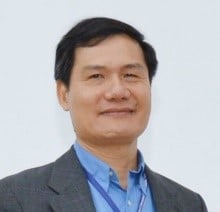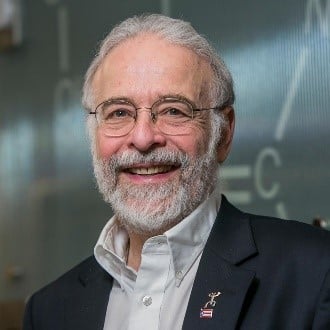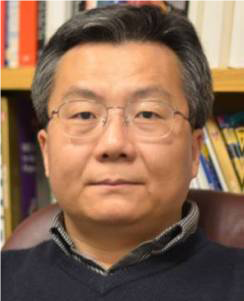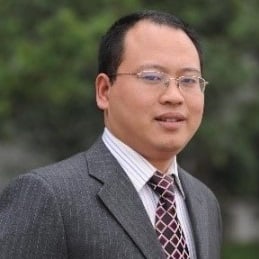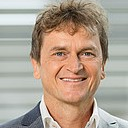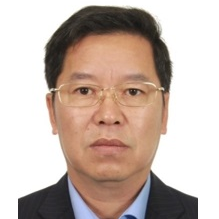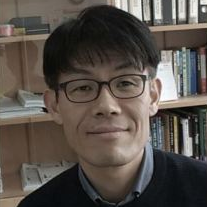
Journal Menu
► ▼ Journal Menu-
- Materials Home
- Aims & Scope
- Editorial Board
- Reviewer Board
- Topical Advisory Panel
- Instructions for Authors
- Special Issues
- Topics
- Sections & Collections
- Article Processing Charge
- Indexing & Archiving
- Editor’s Choice Articles
- Most Cited & Viewed
- Journal Statistics
- Journal History
- Journal Awards
- Society Collaborations
- Conferences
- Editorial Office
Journal Browser
► ▼ Journal BrowserNeed Help?
Announcements
23 September 2021
2020 MDPI Top Reviewer Award—Winners Announced

Rigorous peer-review is the cornerstone of high-quality academic publishing. Over 369,916 scholars served as reviewers for MDPI journals in 2020. We are extremely appreciative of all those who made a contribution to the editorial process in this capacity. At the beginning of every year, journal editorial offices publish a list of all reviewers’ names to express our gratitude. In addition, this year, the MDPI Top Reviewer Award was announced, to recognize the very best reviewers for their expertise and dedication, and their high-quality, and timely review reports. We are pleased to announce the following winners of the 2020 MDPI Top Reviewer Award:
- Adriana Burlea-Schiopoiu;
- Alban Kuriqi;
- Álvaro González-Vila;
- Alessandro Alaimo;
- Alexey Beskopylny;
- Alexander Yu Churyumov;
- Alberto Fernández-Isabel;
- Andrea Mastinu;
- Antonios N. Papadopoulos;
- Anton Rassõlkin;
- Antonio Humberto Hamad Minervino;
- Arkadiusz Matwijczuk;
- Artur Słomka;
- Baojie He;
- Bartłomiej Potaniec;
- Bojan Đurin;
- Camilo Arturo Rodriguez Diaz;
- Carmelo Maria Musarella;
- Chiachung Chen;
- Chiman Kwan;
- Cristian Busu;
- Danil Pimenov;
- Dan-Cristian Dabija;
- Delfín Ortega-Sánchez;
- Demetrio Antonio Zema;
- Denis Butusov;
- Elena Lucchi;
- Gaurab Dutta;
- Livia Anastasiu;
- M. R. Safaei.
For more information about how to become a reviewer of MDPI journals, please see: www.mdpi.com/reviewers.
22 September 2021
MDPI Joins SDG Publishers Compact

UN's 17 Sustainable Development Goals (SDGs) are the blueprint to achieve a better and more sustainable future for all. In 2020 the SDG Publishers Compact was launched, aimed to inspire publishers and accelerate progress to achieve the 17 goals by 2030. Members of the programme are committed to support the publication of materials that will promote and inspire actions towards SDGs.
MDPI is an eager advocate of SDGs and has already been supporting the programme by creating Special Issues and publishing a series of books on SDGs prior to joining the Compact in 2021. MDPI's Sustainability Foundation initiated the World Sustainability Awards in 2016. We fully support UN's goals to promote sustainable actions that make the world a better place for all and, as part of its commitment, we will focus our actions on SDG10: Reduced Inequalities whilst promoting all 17 SDGs. For more details, please visit the programme’s website: https://www.un.org/sustainabledevelopment/sdg-publishers-compact/.
Joining this initiative was a unanimous decision. MDPI has in its core values the dissemination of science for all, breaking the wall between research access and under-represented members of the scientific community and the general population. To support this initiative further and continue to support under-represented scientists, MDPI will take a series of actions that will be announced once ready.
The first action MDPI takes is to nominate Dr. Liliane Auwerter as the coordinator of the programme. Dr. Auwerter studied Environmental Process Technology (UTFPR, Brazil), obtained her MSc degree in Water and Environmental Engineering (University of Surrey, UK) and in 2020 completed her PhD in self-healing low-friction materials for water transport (Imperial College London, UK), always focusing on diverse scientific projects that would potentially bring sustainability to industrial processes. As a student in Brazil, she engaged in volunteering activities focused on environmental education and took part in the Millennial Development Goals meetings held at the university.
For more information, please contact:
Dr. Liliane Auwerter
Scientific Officer
liliane.auwerter@mdpi.com
14 September 2021
Materials 4th Webinar | Functional Nanomaterials for Fuel Cell Electrochemistry, 21 September 2021

Fuel cells represent a unique electrochemical energy technology for a sustainable future. To render the technology viable in practical applications, a critical first step is to develop effective catalysts at both the cathode and anode, to reduce the energy barriers of the electron–transfer reactions involved, and ultimately enhance the current density and power output. Within this context, the understanding of the catalyst structures and the unraveling of the electron–transfer mechanisms play an indispensable role in advancing fuel cell electrocatalysis. This entails a multidisciplinary effort, from materials chemistry in the design and engineering of electrode catalysts to spectroscopic assessments of the electron–transfer kinetics, and to theoretical investigations of the catalytic active sites and reaction energetics.
It is therefore a great pleasure and honor to welcome three world-leading experts to join us at the webinar, who have made seminal contributions in the area of functional nanomaterials and fuel cell electrocatalysis. They will showcase recent progress in their laboratories in tackling the varied hurdles of fuel cell electrocatalysis and highlight significant issues for future research.
Date: 21/09/2021 Tuesday (US time) | 22/09/2021 Wednesday (CEST)
Time: 5:00pm PDT | 2:00am CEST | 8:00pm EDT
Webinar ID: 828 6890 4633
Webinar Website: https://materials-4.sciforum.net/
Register for free here:
Program
The webinar will last a maximum of 2 hours and 10 minutes.
|
Speaker/Presentation |
Time in CEST/CET |
|
Prof. Dr. Shaowei Chen Chair Introduction |
2:00-2:05 am |
|
“Novel Materials and Operando Methods for Fuel Cell Technologies” |
2:05-2:35 am |
|
Q&A Session |
2:35-2:45 am |
|
“Intermetallic Nanoparticles: Their Synthesis and Enhanced Electrocatalysis” |
2:45-3:15 am |
|
Q&A Session |
3:15-3:25 am |
|
“Fuel Cells: Present and Future” |
3:25-3:55 am |
|
Q&A Session |
3:55-4:05 am |
|
Prof. Dr. Shaowei Chen Closing of Webinar |
4:05-4:10 am |
Chair
|
Prof. Dr. Shaowei Chen Department of Chemistry and Biochemistry, University of California Santa Cruz |
Prof. Dr. Shaowei Chen finished his undergraduate studies in China in 1991, with a B.Sc. degree in Chemistry from the University of Science and Technology of China, and then went to Cornell University, receiving his M.Sc. and Ph.D. degrees in 1993 and 1996, respectively. Following a postdoctoral post at the University of North Carolina at Chapel Hill, he started his independent career at Southern Illinois University in 1998. In summer 2004, he moved to the University of California in Santa Cruz. He is currently a Professor of Chemistry and the Faculty Director of the UCSC COSMOS program. Prof Dr. Shaowei Chen’s research is focused on functional nanomaterials and their applications in electrochemical energy technologies and antimicrobials. Thus far, he has published 376 articles, with an h-index of 79. |
Speakers
|
Prof. Héctor D. Abruña Department of Chemistry and Chemical Biology, Cornell University (USA) |
Prof. Hector D. Abruña, Émile M. Chamot Professor of Chemistry, is the director of the Center for Alkaline Based Energy Solutions (CABES) and the Energy Materials Center at Cornell (emc2). He completed his graduate studies with Royce W. Murray and Thomas J. Meyer at the University of North Carolina at Chapel Hill in 1980 and was a postdoctoral research associate with Allen J. Bard at the University of Texas in Austin from 1980 to 1981. After a brief stay at the University of Puerto Rico, he joined Cornell in 1983. He was Chair of the Department of Chemistry and Chemical Biology from 2004 to 2008. Prof. Abruña has been the recipient of numerous awards, including a Presidential Young Investigator Award, A. P. Sloan Fellowship, J. S. Guggenheim Fellowship, and J. W. Fulbright Senior Fellow. He is the recipient of the Electrochemistry Award for the American Chemical Society (2008), and the C. N. Reilley Award in Electrochemistry, 2007. He was elected Fellow of the American Association for the Advancement of Science in 2007, member of the American Academy of Arts and Sciences in 2007, and Fellow of the International Society of Electrochemistry in 2008. He received the D. C. Grahame Award from the Electrochemical Society in 2009, the Faraday Medal from the Royal Society in 2011, the Brian Conway Prize from the International Society of Electrochemistry in 2013, and he was named Fellow of Electrochemical Society in 2013. In 2017, he was the recipient of the Gold Medal of the International Society of Electrochemistry. He was elected member of the National Academy of Sciences (2018) and was awarded the A. J. Bard Award of the Electrochemical Society (2019), the Frumkin Medal of the International Society of Electrochemistry (2019), and the American Chemical Society Award in Analytical Chemistry (2021). Prof. Abruña is the co-author of over 525 publications (h-index = 93) and has given over 650 invited lectures worldwide. He considers his 56 Ph.D. students and 75 post-doctoral associates his most important professional achievement. |
|
Prof. Shouheng Sun Department of Chemistry, Brown University (USA) |
Prof. Shouheng Sun received his B.Sc. from Sichuan University (China), M.Sc. from Nanjing University (China), and Ph.D. from Brown University (USA). He joined the IBM T. J. Watson Research Center (Yorktown Heights, New York, USA), first as a postdoctoral fellow (1996–1998), and then as a research staff member (1998–2004). In 2005, he returned to Brown University as a tenured Associate Professor and was promoted to Full Professor in 2007. He is now the Vernon K. Krieble Professor of Chemistry and Professor of Engineering. He serves as an Associate Editor of the Royal Society of Chemistry Journals Nanoscale and Nanoscale Advances, and is a Fellow of the Royal Society of Chemistry. His main research interests are in chemical synthesis and self-assembly of nanoparticles for catalytic, magnetic, and biomedical applications (h-index 131). |
|
Prof. Vojislav Stamenkovic Department of Chemical and Biomolecular Engineering and Department of Chemistry, University of California Irvine (USA) |
Prof. Vojislav Stamenkovic is a Professor at the University California, Irvine, Department of Chemical and Biomolecular Engineering and Department of Chemistry, and Staff Scientist, Technical Leader and Principal Investigator at the US Department of Energy’s Argonne National Laboratory in Argonne, Illinois. He earned his Ph.D. degree in physical chemistry from the University of Belgrade in 2001, after spending three years as a visiting scientist at the University of California at Berkeley. From 2002 to 2005, he was a postdoctoral and staff scientist within the Materials Sciences Division at the Lawrence Berkeley National Laboratory, and from 2006, he was a staff scientist in the Materials Science Division of Argonne National Laboratory, where he has conducted multidisciplinary research related to materials for electrochemical systems. Prof. Stamenkovic is an expert in the design and synthesis of functional materials for electrochemical applications, primarily in the fields of polymer electrolyte membrane fuel cells, electrolyzers, and batteries. His research interests include materials for energy conversion and storage, electrocatalysis, and spectroelectrochemistry, as well as functional biomaterials. In 2004, Prof. Stamenkovic received a Recognition Award from Lawrence Berkeley National Laboratory for the implementation of fundamental science into nanoscale applications. In 2012, he was awarded the Distinguished Performance Award from the University of Chicago, and in 2014, he received a prestigious US DOE Hydrogen and Fuel Cells Award in recognition of his outstanding contributions to catalysts R&D. He has published over 130 articles and book chapters, for which he has received over 17,000 citations with an h-index of 55. He has authored over 200 presentations and has been an invited plenary and keynote speaker more than 100 times at major conferences, symposia, and seminars. His work has been published in high impact journals, such as Science, Nature Materials, and Angewandte Chemie, and is often featured in the headlines of Lawrence Berkeley National Laboratory and Argonne National Laboratory. |
For any questions about the webinar, please send an email to materials.webinar@mdpi.com.
3 August 2021
Announcement on Japanese Consumption Tax (JCT)
This serves to announce to our valued authors based in Japan that value-added tax, or consumption tax will now be imposed on article processing fees and other service fees for all papers submitted, or resubmitted (assigned new paper IDs), effective from 15 August 2021. The change is in accordance with the Japanese "Act for Partial Revision of the Income Tax Act and Other Acts" (Act No. 9 of 2015), which includes a revision of consumption taxation on cross-border supplies of services such as digital content distribution.
For additional information from the National Tax Agency please see here ("Cross-border supplies of electronic services").
Contact: Setsuko Nishihara, MDPI Tokyo
21 July 2021
Materials Receives Updated Impact Factor of 3.623
We are pleased to inform you that, with the support of our authors, editors, and reviewers, Materials received an increased Journal Impact Factor of 3.623 and a 5-Year Impact Factor of 3.920. This was released in the recent Journal Citation Reports®. And Materials has been approved for coverage within three new categories of the Journal Citation Reports (JCR): “Metallurgy and Metallurgical Engineering”, “Physics, Applied”, and “Physics, Condensed Matter”.
Materials has achieved three consecutive years of growth in its Impact Factor. We are grateful to all the scholars who have witnessed the journal’s growth with us.
In the rank ordered by Journal Impact Factor, Materials now ranks 17/80 Q1 in “Metallurgy and Metallurgical Engineering”, 79/162 Q2 in “Chemistry, Physical,” 152/335 Q2 in “Materials Science, Multidisciplinary”, 51/160 Q2 in “Physics, Applied”, and 27/69 Q2 in “Physics, Condensed Matter”.
Thank you for your continuous support of Materials!
5 July 2021
Meet Us at the 2nd International Conference for Global Chinese Academia on Energy and Built Environment, Chengdu, China, 16–19 July 2021

MDPI will be attending the 2nd International Conference for Global Chinese Academia on Energy and Built Environment (CEBE 2021) in Chengdu, China, on 16–19 July 2021. The conference aims at establishing a worldwide platform for promoting global cooperation and innovative communications for ethnic Chinese around the globe, sharing cutting-edge achievements in the utilization of clean energy, the enhancement of energy efficiency via the built environment, and the improvement in environmental quality.
The following MDPI journals will be represented:
If you are attending this conference, please feel free to stop by our booth. Our delegates look forward to meeting you in person to answer any questions you may have. For more information about the conference, please visit the following link: http://www.cebe2021.com.
2 July 2021
Recruiting Editorial Board Members for the “Energy Materials” Section of Materials

Materials (ISSN: 1996-1944) is an international, peer-reviewed, open access journal that is published semi-monthly online by MDPI. It publishes reviews, regular research papers (articles), and communications that advance the in-depth understanding of the relationship between the structure, the properties, and the functions of all kinds of materials. It is abstracted and indexed by SCIE, Scopus, and other databases. Citations are available in PubMed, and full texts are archived in PubMed Central. The 2020 IF for Materials was 3.623.
The main responsibilities of the Section Editorial Board Members are as follows:
1) Supervising the quality of the papers in this Section (when we have new submissions in the Section);
2) Acting as a/recommending a Guest Editor for a Special Issue on a topic related to your research interests;
3) Providing conference/society cooperation recommendations.
This position is open to experts in all aspects of energy materials. To apply for this position, recommend potential candidates, or request further information, please contact the Materials Editorial Office (materials@mdpi.com) or Freya Dong (freya.dong@mdpi.com).
30 June 2021
2020 Impact Factors - Released
The 2020 citation metrics have been officially released in the Journal Citation Reports (JCR)!
We are pleased to announce that 85 MDPI journals are included, of which:
- 10 journals received their first impact factor
- 96% of journals increased their impact factor from 2019
- 32 journals (38%) ranked among the top 25% of journals, in at least one category
| Journal | Impact Factor | Rank | Category |
| Cancers | 6.639 | Q1 | • Oncology |
| Cells | 6.600 | Q2 | • Cell Biology |
| Pharmaceutics | 6.321 | Q1 | • Pharmacology & Pharmacy |
| Antioxidants | 6.313 | Q1 | • Food Science & Technology |
| • Biochemistry & Molecular Biology | |||
| • Chemistry, Medicinal | |||
| Biomedicines | 6.081 | Q1 | • Medicine, Research & Experimental |
| • Pharmacology & Pharmacy | |||
| • Biochemistry & Molecular Biology | |||
| International Journal of Molecular Sciences | 5.924 | Q1 | • Biochemistry & Molecular Biology |
| Q2 | • Chemistry, Multidisciplinary | ||
| Pharmaceuticals | 5.863 | Q1 | • Pharmacology & Pharmacy |
| • Chemistry, Medicinal | |||
| Journal of Fungi | 5.816 | Q1 | • Mycology |
| • Microbiology | |||
| Nutrients | 5.719 | Q1 | • Nutrition & Dietetics |
| Biosensors | 5.519 | Q1 | • Chemistry, Analytical |
| • Instruments & Instrumentation | |||
| Q2 | • Nanoscience & Nanotechnology | ||
| Marine Drugs | 5.118 | Q1 | • Chemistry, Medicinal |
| • Pharmacology & Pharmacy | |||
| Biology | 5.079 | Q1 | • Biology |
| Nanomaterials | 5.076 | Q1 | • Physics, Applied |
| Q2 | • Chemistry, Multidisciplinary | ||
| • Materials Science, Multidisciplinary | |||
| • Nanoscience & Nanotechnology | |||
| Viruses | 5.048 | Q2 | • Virology |
| Journal of Personalized Medicine | 4.945 | Q1 | • Medicine, General & Internal |
| • Health Care Sciences & Services | |||
| Metabolites | 4.932 | Q2 | • Biochemistry & Molecular Biology |
| Biomolecules | 4.879 | Q2 | • Biochemistry & Molecular Biology |
| Remote Sensing | 4.848 | Q1 | • Geosciences, Multidisciplinary |
| Q2 | • Remote Sensing | ||
| • Imaging Science & Photographic Technology | |||
| • Environmental Sciences | |||
| Gels * | 4.702 | Q1 | • Polymer Science |
| Antibiotics | 4.639 | Q2 | • Infectious Diseases |
| • Pharmacology & Pharmacy | |||
| Toxins | 4.546 | Q1 | • Toxicology |
| • Food Science & Technology | |||
| Vaccines | 4.422 | Q2 | • Immunology |
| • Medicine, Research & Experimental | |||
| Molecules | 4.412 | Q2 | • Chemistry, Multidisciplinary |
| • Biochemistry & Molecular Biology | |||
| Foods | 4.350 | Q2 | • Food Science & Technology |
| Polymers | 4.329 | Q1 | • Polymer Science |
| Journal of Clinical Medicine | 4.242 | Q1 | • Medicine, General & Internal |
| Toxics | 4.146 | Q2 | • Toxicology |
| • Environmental Sciences | |||
| Catalysts | 4.146 | Q2 | • Chemistry, Physical |
| Microorganisms | 4.128 | Q2 | • Microbiology |
| Membranes | 4.106 | Q1 | • Polymer Science |
| Q2 | • Engineering, Chemical | ||
| • Materials Science, Multidisciplinary | |||
| • Chemistry, Physical | |||
| Genes | 4.096 | Q2 | • Genetics & Heredity |
| Fermentation * | 3.975 | Q2 | • Biotechnology & Applied Microbiology |
| Journal of Cardiovascular Development and Disease * | 3.948 | Q2 | • Cardiac & Cardiovascular Systems |
| Plants | 3.935 | Q1 | • Plant Sciences |
| Life | 3.817 | Q2 | • Biology |
| Diagnostics | 3.706 | Q2 | • Medicine, General & Internal |
| Current Oncology | 3.677 | Q3 | • Oncology |
| Materials | 3.623 | Q1 | • Metallurgy & Metallurgical Engineering |
| Q2 | • Materials Science, Multidisciplinary | ||
| • Chemistry, Physical | |||
| • Physics, Applied | |||
| • Physics, Condensed Matter | |||
| Sensors | 3.576 | Q1 | • Instruments & Instrumentation |
| Q2 | • Chemistry, Analytical | ||
| • Engineering, Electrical & Electronic | |||
| Pathogens | 3.492 | Q2 | • Microbiology |
| Agronomy | 3.417 | Q1 | • Agronomy |
| • Plant Sciences | |||
| Chemosensors | 3.398 | Q2 | • Instruments & Instrumentation |
| • Chemistry, Analytical | |||
| Q3 | • Electrochemistry | ||
| Land | 3.398 | Q2 | • Environmental Studies |
| Brain Sciences | 3.394 | Q3 | • Neurosciences |
| International Journal of Environmental Research and Public Health | 3.390 | Q1 | • Public, Environmental & Occupational Health (SSCI) |
| Q2 | • Public, Environmental & Occupational Health (SCIE) | ||
| • Environmental Sciences (SCIE) | |||
| Tomography | 3.358 | Q2 | • Radiology, Nuclear Medicine & Medical Imaging |
| Fractal and Fractional * | 3.313 | Q1 | • Mathematics, Interdisciplinary Applications |
| Sustainability | 3.251 | Q2 | • Environmental Sciences (SCIE) |
| • Environmental Studies (SSCI) | |||
| Q3 | • Green & Sustainable Science & Technology (SCIE) | ||
| • Green & Sustainable Science & Technology (SSCI) | |||
| Water | 3.103 | Q2 | • Water Resources |
| • Environmental Sciences | |||
| Journal of Theoretical and Applied Electronic Commerce Research | 3.049 | Q3 | • Business |
| Energies | 3.004 | Q3 | • Energy & Fuels |
| Agriculture | 2.925 | Q1 | • Agronomy |
| ISPRS International Journal of Geo-Information | 2.899 | Q2 | • Geography, Physical |
| • Computer Science, Information Systems | |||
| Q3 | • Remote Sensing | ||
| Micromachines | 2.891 | Q2 | • Instruments & Instrumentation |
| • Physics, Applied | |||
| Q3 | • Chemistry, Analytical | ||
| • Nanoscience & Nanotechnology | |||
| Coatings | 2.881 | Q2 | • Materials Science, Coatings & Films |
| • Physics, Applied | |||
| Q3 | • Materials Science, Multidisciplinary | ||
| Children | 2.863 | Q2 | • Pediatrics |
| Processes | 2.847 | Q3 | • Engineering, Chemical |
| Separations | 2.777 | Q3 | • Chemistry, Analytical |
| Insects | 2.769 | Q1 | • Entomology |
| Animals | 2.752 | Q1 | • Agriculture, Dairy & Animal Science |
| • Veterinary Sciences | |||
| Symmetry | 2.713 | Q2 | • Multidisciplinary Sciences |
| Atmosphere | 2.686 | Q3 | • Meteorology & Atmospheric Sciences |
| • Environmental Sciences | |||
| Applied Sciences | 2.679 | Q2 | • Engineering, Multidisciplinary |
| • Physics, Applied | |||
| Q3 | • Chemistry, Multidisciplinary | ||
| • Materials Science, Multidisciplinary | |||
| Photonics | 2.676 | Q2 | • Optics |
| Buildings * | 2.648 | Q2 | • Construction & Building Technology |
| • Engineering, Civil | |||
| Healthcare | 2.645 | Q2 | • Health Policy & Services (SSCI) |
| Q3 | • Health Care Sciences & Services (SCIE) | ||
| Minerals | 2.644 | Q2 | • Mining & Mineral Processing |
| • Mineralogy | |||
| • Geochemistry & Geophysics | |||
| Forests | 2.634 | Q1 | • Forestry |
| Crystals | 2.589 | Q2 | • Crystallography |
| Q3 | • Materials Science, Multidisciplinary | ||
| Entropy | 2.524 | Q2 | • Physics, Multidisciplinary |
| Diversity | 2.465 | Q2 | • Biodiversity Conservation |
| Q3 | • Ecology | ||
| Journal of Marine Science and Engineering | 2.458 | Q2 | • Oceanography |
| • Engineering, Marine | |||
| • Engineering, Ocean | |||
| Medicina | 2.430 | Q2 | • Medicine, General & Internal |
| Machines * | 2.428 | Q2 | • Engineering, Mechanical |
| Q3 | • Engineering, Electrical & Electronic | ||
| Electronics | 2.397 | Q3 | • Engineering, Electrical & Electronic |
| • Computer Science, Information Systems | |||
| • Physics, Applied | |||
| Fishes * | 2.385 | Q2 | • Fisheries |
| • Marine & Freshwater Biology | |||
| Metals | 2.351 | Q2 | • Metallurgy & Metallurgical Engineering |
| Q3 | • Materials Science, Multidisciplinary | ||
| Horticulturae * | 2.331 | Q1 | • Horticulture |
| Veterinary Sciences * | 2.304 | Q1 | • Veterinary Sciences |
| Universe | 2.278 | Q3 | • Physics, Particles & Fields |
| • Astronomy & Astrophysics | |||
| Mathematics | 2.258 | Q1 | • Mathematics |
| Magnetochemistry | 2.193 | Q3 | • Chemistry, Inorganic & Nuclear |
| • Chemistry, Physical | |||
| • Materials Science, Multidisciplinary | |||
| Current Issues in Molecular Biology | 2.081 | Q4 | • Biochemistry & Molecular Biology |
| Actuators | 1.994 | Q3 | • Instruments & Instrumentation |
| • Engineering, Mechanical | |||
| Aerospace * | 1.659 | Q2 | • Engineering, Aerospace |
* Journals given their first Impact Factor in 2021
Source: 2020 Journal Impact Factors, Journal Citation Reports ® (Clarivate, 2021)
29 June 2021
Materials | Five New Sections Established
In order to specifically develop different research areas and attract more high-quality papers, we are pleased to announce the addition of the following five new Sections to Materials, which are intended to cover all of the disciplines of the field of materials science:
- “Advanced and Functional Ceramics and Glasses” (Section Editor-in-Chief: Dr. Francesco Baino);
- “Metals and Alloys” (Section Editor-in-Chief: Prof. Dr. Yong-Cheng Lin);
- “Soft Matter” (Section Editor-in-Chief: Prof. Dr. Jens-Uwe Sommer);
- “Polymeric Materials” (Section Editors-in-Chief: Prof. Dr. Shouke Yan and Prof. Dr. Xu-Ming Xie);
- “Quantum Materials” (Section Editor-in-Chief: Prof. Dr. Heesun Yang).
Introduction of Section Editors-in-Chief:
|
|
Name: Dr. Francesco Baino Editor-in-Chief in Section: “Advanced and Functional Ceramics and Glasses” Affiliation: Institute of Materials Physics and Engineering, Department of Applied Science and Technology, Politecnico di Torino, Corso Duca degli Abruzzi 24, 10129 Turin, Italy Research Interest: bioactive glasses; bioceramics; composites; tissue engineering; multifunctional biomaterials; biomedical scaffolds; additive manufacturing; advanced ceramics |
|
|
Name: Prof. Dr. Yong-Cheng Lin Editor-in-Chief in Section: “Metals and Alloys” Affiliation: School of Mechanical and Electrical Engineering, Central South University, Changsha 410083, China Research Interest: alloys; intelligent manufacturing processing; heat treatment; microstructure; deformation mechanisms; properties |
|
|
Name: Prof. Dr. Jens-Uwe Sommer Editor-in-Chief in Section: “Soft Matter” Affiliation: Leibniz-Institut fur Polymerforschung Dresden e.V., Institute Theory of Polymers, Dresden, Germany Research Interest: theoretical polymer and biopolymer physics; computer simulations in soft matter; statistical physics; polymers at interfaces; polymer networks; polymer solutions; polymer crystallization; polymers and nanoparticles |
|
|
Name: Prof. Dr. Shouke Yan Editor-in-Chief in Section: “Polymeric Materials” Affiliation: 1. School of Materials Science and Engineering, Beijing University of Chemical Technology, Beijing 100029, China; 2. School of Polymer Science and Engineering, Qingdao University of Science and Technology, Qingdao 266042, China Research Interest: multiscale structure of polymeric materials; orientation-induced polymer crystallization; surface-induced polymer crystallization; confined polymer crystallization; polymer blends |
|
|
Name: Prof. Dr. Xu-Ming Xie Editor-in-Chief in Section: “Polymeric Materials” Affiliation: Department of Chemical Engineering, Tsinghua University, Beijing 100084, China Research Interest: polymer hydrogels; polymer blends; nanomaterials and nanocomposites; plastics recycling and value-added reuse |
|
|
Name: Prof. Dr. Heesun Yang Editor-in-Chief in Section: “Quantum Materials” Affiliation: Department of Materials Science and Engineering, Hongik University, Seoul 04066, Korea Research Interest: quantum dots; materials chemistry; photoluminescence; electroluminescence; light-emitting diode |
We warmly welcome these five scholars in the role of Section Editors-in-Chief, and we look forward to them leading Materials to achieve more milestones.
23 June 2021
Recruiting Editorial Board Members for the “Manufacturing Processes and Systems” Section in Materials

Materials (ISSN: 1996-1944) is an international, peer-reviewed, open access journal published semi-monthly online by MDPI. It publishes reviews, regular research papers (articles), and communications that advance the in-depth understanding of the relationship between the structure, the properties, and the functions of all kinds of materials. It is abstracted and indexed by SCIE, Scopus, and other databases. Citations are available on PubMed, and full texts are archived in PubMed Central. 2019 IF for Materials was 3.057.
The main responsibilities of Section Editorial Board Members are as follows:
1) Supervising the quality of the papers in this Section (when we have new submissions in the Section);
2) Acting as a/recommending a Guest Editor for a Special Issue on a topic related to your research interests;
3) Providing conference/society cooperation recommendations.
This position is open to experts in Manufacturing Processes and Systems. To apply for this position, recommend potential candidates, or request further information, please contact the Materials Editorial Office (materials@mdpi.com) or Riley Ren (riley.ren@mdpi.com).




